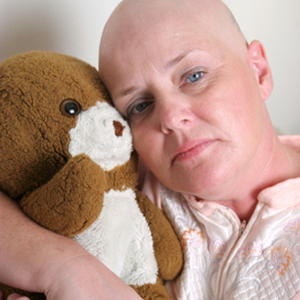
Research shows that 70% of cervical cancers are caused by the Human Papilloma Virus (HPV) strains 16 and 18 and that 80% of sexually active women will acquire a HPV infection at some point in their life, with a risk of recurring infections.
The virus is commonly spread through sexual contact and the vaccine prevents the most common strains of the virus that causes cervical cancer and genital warts. It is recommended that the vaccine be administered to men and women ages 9 to 26. It is given as a series of three injections over a 6 month period.
The vaccine is not recommended for pregnant women or people who are moderately to severely ill. At the moment two vaccines are available and both of these can prevent most cases of cervical cancer if given to a girl or woman before they are exposed to the virus and can also prevent most vaginal and vulvar cancers in women.
It can also prevent genital warts in women and men. Once infected with HPV the vaccine is less effective and thus getting vaccinated before becoming sexually active is recommended.
Vaccinations will be available at schools
The announcement that government will make the vaccine available in schools as of February 2014 is a huge victory for South African women. Countless lives will be saved because of this initiative. Dance for a Cure (DFAC) would love to get involved with this to raise awareness of cervical cancer and the need for the vaccine not only in the public sector, but also in the private sector.
Precautions
Besides getting vaccinated, there are a few things you can do to decrease your chances of contracting cervical cancer:- Papanicolaou smears (Pap smears) are the best-known way to detect cervical abnormalities. Because the progression of the disease is slow, it can take 10 – 20 years for it to become invasive, it is imperative that women get screened on a regular basis.
- Stop smoking or preferably never start. Women who smoke are more susceptible to cervical cancer. In fact, it doubles their chances.
- Use condoms every time you engage in sexual activity to prevent the spread of the HPV virus.
- Postpone sexual activity to an older age.
- Limit sexual partners as the more sexual partners you’ve had, the greater your chance of having been exposed to multiple strains of HPV.
DFAC and their goals
DFAC came into existence in 2007 to raise funds to fight cervical cancer, educate the public about the disease and save lives. Their primary objective is to create awareness of the disease and to fund vaccination drives among under-privileged girls.
All funds raised go towards purchasing the vaccine. DFAC focuses on closed environments to ensure that it can monitor those who receive vaccinations and ensure that all three vaccines are administered, to this end it has chosen the Abraham Kriel Home.
The Johannesburg Children’s Home, The Durban Children’s Home, St Philomena’s Children’s home and The Wylie Youth Centre for its drives. Its goal is to vaccinate all of the children at these homes.
Cervical cancer is one of the most low profile diseases in South Africa and yet it is the biggest killer amongst our women. The Nobel prize-winning vaccine can make a huge difference. We urge women to get themselves and their children vaccinated to help in the fight against this preventable disease.




 Publications
Publications
 Partners
Partners














